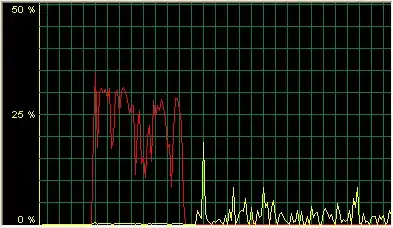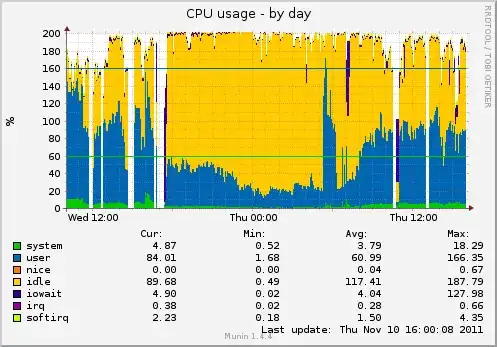I am trying to transfer a 10GB file to test my network. But when I transfer from Workstation 1 to Workstation 2, it takes 8 minutes (which is fine). But from Workstation 2 to Workstation 1, the transfer takes 50 minutes or so.
Here is the scenario:

10GB file transfer:
Workstation 1 -> Workstation 2 = 8 minutes
Workstation 2 -> Workstation 1 = 50 minutes (and flickering)
When I try with another switch between the 2 hosts, both side transfers are fine. So the problem resides on the Linksys Switch itself?
How can I diagnose this issue?
EDIT:
The switch is NOT the issue, iv changed the switch and the issue is still there. Here is a graph taken during the transfers. Red is TX and Yellow is RX. So basically, Workstation 1 is receiving data (YELLOW) very slowly, and transmits (RED) fine. And the transfers are always between the same 2 hosts. Also, Workstation 2 is RXing and TXing fine, iv tested between Workstation 2 and another Workstation other than 1. So Workstation 1 has the issue I think. How can I diagnose this?
- Note that the network cards are set to Auto Negotiate on both workstations and both are GigaEthernet.

EDIT 2:
I did an iperf between WS 1 and WS 2 with the -d option:

This is clearly showing an issue with network RXing (receiving) on workstation 1, so the disk i/o is NOT the issue here. Please help me :(